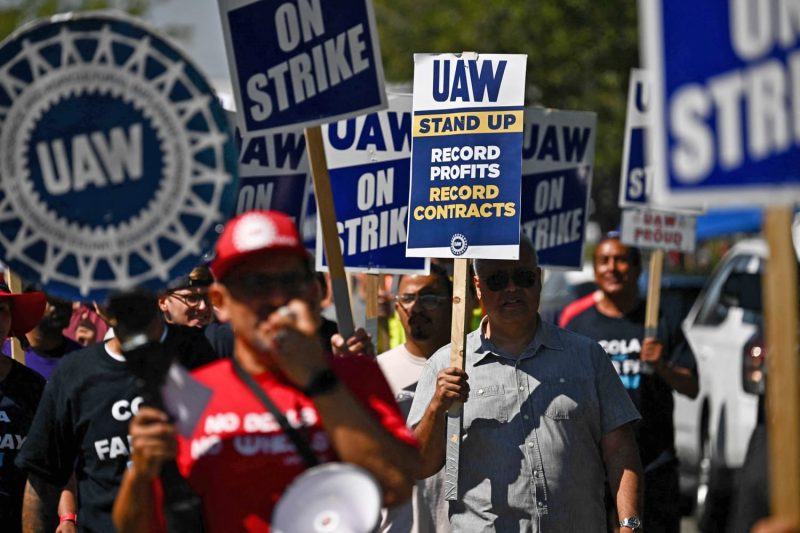The automobile industry is no stranger to challenges and criticism, with major players like Stellantis frequently in the spotlight. Recently, UAW and U.S. dealers have stepped up their critique of Stellantis CEO, Carlos Tavares, citing concerns over cuts and sales declines.
The United Auto Workers (UAW) union, representing a significant portion of autoworkers, has expressed dissatisfaction with the direction Stellantis is taking under Tavares’ leadership. The decision to cut production at some of its manufacturing plants has raised concerns about potential job losses and the impact on workers and communities.
Additionally, U.S. dealers, who are on the front lines of selling Stellantis vehicles to consumers, have voiced their displeasure over declining sales figures. While external factors such as supply chain disruptions and the global semiconductor shortage have played a role in the dip in sales, dealers argue that internal strategies and decisions by the company have exacerbated the situation.
One key point of contention is the approach to electric vehicles (EVs) and the transition away from traditional internal combustion engine vehicles. While many see the shift towards EVs as inevitable and necessary for the industry’s sustainability, criticisms have been raised about the pace and strategy employed by Stellantis in this regard.
Critics point to the lack of a clear and coherent electric vehicle roadmap, which has led to uncertainty among both consumers and dealers. The absence of a comprehensive plan for EVs raises questions about Stellantis’ competitiveness in the rapidly evolving automotive landscape.
Moreover, concerns have been raised about the impact of these decisions on the workforce and job security. The automotive industry is a major employer globally, and any shifts or disruptions in production can have significant repercussions on thousands of workers and their families.
In response to the growing criticism, Stellantis has emphasized its commitment to an electrified future and sustainable mobility solutions. However, the company will need to address the concerns raised by UAW and U.S. dealers to regain trust and confidence in its strategic direction.
As the automotive industry continues to navigate challenges such as technological advancements, regulatory changes, and shifting consumer preferences, effective communication and collaboration between stakeholders will be crucial. Stellantis, under the leadership of Carlos Tavares, will need to actively engage with the concerns raised by UAW and U.S. dealers to steer the company towards a successful and sustainable future.
